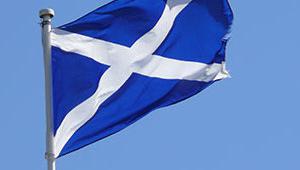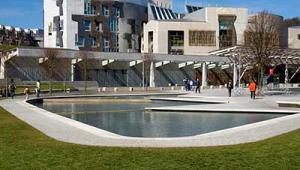Scottish tsunami still making waves
The shocks from the SNP’s electoral ‘tsunami’, as the general election result is being called, continue to reverberate through Scottish public life.
The only remaining Liberal Democrat MP, Alistair Carmichael, is facing legal action over statements made during the campaign concerning a leaked memo suggesting that Nicola Sturgeon had secretly wanted David Cameron to win.
Labour’s solitary Scottish MP, Ian Murray, has been trying to establish himself as shadow Scottish secretary in the Commons, but with some difficulty. The phalanx of 56 SNP MPs continually try to undermine his authority to lead in debates and at question time.
As for the Scottish Secretary himself, David Mundell, the only Conservative MP left in Scotland has been trying to convince the SNP that the Scotland Bill, which has just received its Second Reading, is an accurate reflection of the infamous ‘vow’ delivered by the unionist party leaders in the dying days of the independence referendum campaign last year.
The SNP says the vow was for “devo max” or “near federalism”. Mundell says it merely promised the devolution of income tax powers and certain welfare responsibilities proposed by the Smith commission. And it has to be said that the Bill does exactly this.
The Scottish Government signed off on the Smith recommendations last December. But the landscape has changed so markedly since the election that the SNP believes the government should have gone much further in devolving taxation and welfare powers to Holyrood.
How much further is a moot point. There appeared to be an initial reluctance on the part of some SNP MPs to press for an early transition to full fiscal autonomy. This is because, given the collapse in the price of oil, the Institute for Fiscal Studies suggests there would be a black hole of £7.6bn a year if all public spending in Scotland were to be financed by Scottish tax revenues.
The SNP disputes this. And its deputy leader, Stewart Hosie, finally did seek to table an amendment to the Bill calling for fiscal autonomy. The move was largely symbolic because neither Labour nor the Conservatives support the policy, which David Cameron believes would be tantamount to independence.
Which raises the question of what real influence, if any, the 56 SNP MPs can exert in Westminster. The SNP is the third largest party in the UK, and that gives it a number of privileges, including the chairmanship of the important Scottish Select Committee. But in legislative terms the MPs’ impact is going to be negligible.
They attempted to amend the Bill triggering the EU referendum to allow 16- and 17-year-olds to vote, and while this idea won the backing of the Labour Party, the amendment fell nevertheless.
The SNP runs the risk of becoming the butt of the gibe it used to hurl at Labour in the 1990s, when it had 50 plus MPs. The SNP called them “the feeble 50”. But one suspects they will find ways of making their presence felt, at least presentationally.
In any event, the focus of attention is already shifting back north from Westminster to Holyrood. An opinion poll by YouGov has indicated that Labour is unlikely to win any constituency seats at the Scottish parliamentary elections in May next year.
According to the poll, 60% of Scots are planning to vote for the SNP in Holyrood – 10% more than backed the party at the general election. So the Scottish voters appear to be satisfied so far with the performance of their new MPs.
The SNP electoral steamroller continues to crush the life out of the opposition parties. Which is leaving some commentators seriously wondering if Scotland is becoming a one-party state.












